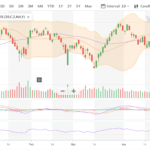Financial literacy is one of those things that sounds like a good idea but isn’t always easy to understand. It’s all about knowing how to handle your money, and it’s so important that most people agree that financial education is part of a well-rounded personal development program.
But what exactly does financial literacy mean? How can you improve your financial knowledge, especially if you’re not a financial expert? And why should you care about being financially literate in the first place? In this article, I’ll explain what financial literacy is, why it matters, and how you can become more financially literate yourself.
What is financial literacy?
Financial literacy is the knowledge, skills, and attitudes that people need to make sound financial decisions. Financial literacy is not just about money. It’s also about people, society, and the economy.
Investopedia
It includes:
🤑 The ability to earn cash for meeting needs and wants
💵 The ability to manage financial choices
👨🏫 Understanding the relationship between money management skills and other life goals such as children’s education or home ownership
👩🏫 Keeping up with changes in technology like debit cards, credit cards, direct deposit, and mobile
Why do we need financial literacy?
You might not think about it, but being financially literate can help you and the people around you in a number of ways. First, it’s important for individuals to be able to make smart personal financial decisions that will help them achieve their goals. Second, businesses need their employees to be financially literate so they can more easily do their jobs. Third, governments need citizens who have a solid understanding of money management in order to properly fund public services like schools, libraries, and roads. Finally, society as a whole benefit when everyone has some basic knowledge about money matters so we all work together toward common goals like economic growth.
What are the different types of financial literacy?
There are five types of financial literacy:
- Knowledge – understanding and being able to use money
- Planning – knowing how to save, spend, give and invest your money
- Decision-making – thinking about the pros and cons of different spending choices before you make them. This includes saving for the future and spending responsibly today.
- Management – using your resources wisely when you have some control over them (like your own bank account). For example, managing a budget is an important part of responsible money management because it helps you keep track of your income and expenses so that you can plan for the future or pay off debts as soon as possible.
- Risk management – understanding risks in order to reduce them when possible or avoid them altogether if possible; risk management also includes insuring yourself against potential losses from certain situations (for example, buying car insurance).
How can I improve my financial literacy?
- Read books and articles about personal finance.
- Talk to financial advisors.
- Talk to friends and family about their experiences with money.
- Talk to financial professionals such as a bank manager or credit union representative, or talk directly to financial institutions (e.g., banks) if you have questions about products or services they offer.
How can improving my financial literacy help me?
A basic understanding of financial literacy can help you make better and more informed decisions about your finances. It will also help you avoid common pitfalls, like consumer debt and the stock market crash. This knowledge will enable you to plan for your future, save money, invest wisely, and understand how the economy works. You’ll be able to recognize a good investment opportunity when it crosses your path!
Learning about finance will help you in nearly every area of your life.
Learning about finance will help you in nearly every area of your life. Finance is a skill that can be applied to your career, personal life, and relationship with money.
Financial literacy is the understanding of how money works and how to manage it effectively throughout life. When you understand how money works, you will be able to:
- Make better financial decisions through effective decision-making skills.
- Calculate interest on loans or investments for yourself or others using different formulas like APR (Annual Percentage Rate).
- Understand taxes so as not to get taxed twice on interest earned from savings accounts or investments such as stocks, bonds etcetera depending on where they are located geographically – country-wise or regionally within countries like USA Federal Reserve Bank vs New York State Department Of Revenue Etcetera.”
The end
Now that you know a thing or two about financial literacy, it’s time for you to start putting your knowledge into action by creating a budget and learning how to stick with it. If you need help, there are lots of great tools available online that will make the process easier, but you can start with our Investing Resources List.
Financial literacy is something everyone should learn because it will help them in nearly every area of their life from saving money on groceries to making smarter investment decisions. Subscribe to our blog and you will learn more.

